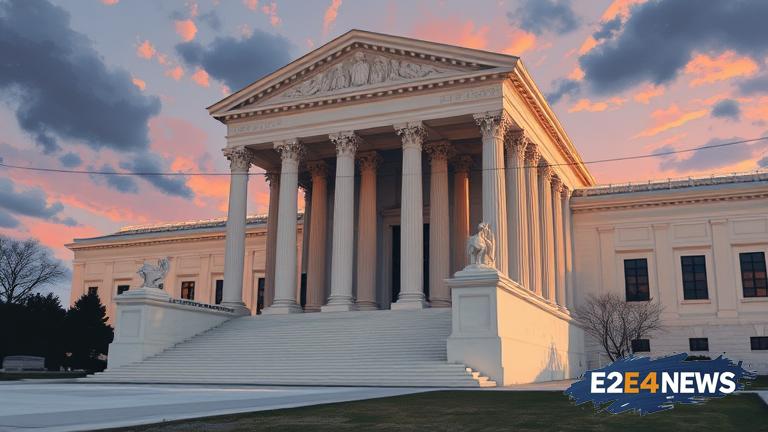In a recent decision, the Supreme Court of the United States has approved a plan that could potentially gut the Department of Education, leaving many to wonder about the future of education in the country. The plan, which has been met with significant opposition from educators and lawmakers, aims to reduce the department’s authority and influence over education policy. The decision has sparked controversy and debate, with many arguing that it could have far-reaching and devastating consequences for the education system. The Department of Education, which was established in 1979, has played a crucial role in shaping education policy and providing funding for schools and educational programs. The department has also been instrumental in promoting education reform and ensuring that all students have access to quality education. However, the plan approved by the Supreme Court could significantly reduce the department’s ability to carry out these functions. The ruling has been met with widespread criticism from educators, lawmakers, and advocacy groups, who argue that it could lead to a decline in education standards and outcomes. Many are also concerned about the potential impact on vulnerable student populations, such as low-income students and students with disabilities. The plan has been touted as a way to reduce bureaucracy and give more control to states and local governments, but critics argue that it could lead to a lack of accountability and oversight. The Supreme Court’s decision has also raised questions about the role of the federal government in education and whether it has the authority to make such significant changes to the education system. As the country waits to see how the plan will be implemented, many are left wondering about the future of education in the United States. The decision has also sparked a wider debate about the importance of education and the need for a well-funded and effective education system. Educators and lawmakers are calling for increased funding and support for education, arguing that it is essential for the country’s economic and social well-being. The Supreme Court’s ruling has also highlighted the need for greater accountability and oversight in education, to ensure that all students have access to quality education and that education standards are maintained. The plan approved by the Supreme Court is likely to have significant implications for education policy and funding, and it remains to be seen how it will be implemented and what the consequences will be. The decision has also raised questions about the impact on teacher training and support, as well as the potential consequences for student outcomes and achievement. As the education community waits to see how the plan will be implemented, many are left wondering about the future of education in the United States and the potential consequences of the Supreme Court’s ruling.
